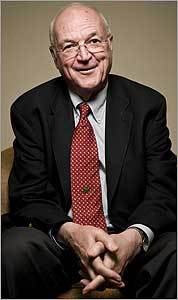The escalating warfare in the birthplace of the Prince of Peace may claim another victim: Benedict’s visit to Israel this May. According to CNS, Vatican sources have said a worsening of the Palestinian-Israeli conflict could alter the pope’s travel plans.
Such a visit could provide the impetus for a cessation or lessening of hostilities, but the pope has to get there first, and he is undoubtedly (well, hopefully) weighing his words carefully. From the CNS coverage of Benedict’s noontime blessing address yesterday:
“I am deeply saddened for the dead, the wounded, the material damage, and the sufferings and tears of the people who are the victims of this tragic sequence of attacks and reprisals,” the pope said.
“The earthly homeland of Jesus cannot continue to be a witness to such bloodshed, which is repeated without end! I implore the end of this violence, which must be condemned in all its forms, and a restoration of the truce in the Gaza Strip,” he said.
The pope called for a fresh demonstration of “humanity and wisdom in everyone who has responsibility in the situation.”
[snip]
The Vatican spokesman, Jesuit Father Federico Lombardi, told Vatican Radio Dec. 27 that the latest escalation of violence was a provocation by both sides, and showed that both Hamas and Israel were caught up in a mentality of conflict.
“Hamas is a prisoner of a logic of hatred, Israel of a logic of trusting in force as the best response to hatred. They need to keep looking for a different way out, even if it seems impossible,” Father Lombardi said.
The spokesman said Israel’s attack on Gaza was notable for its intensity and the number of victims.
“Certainly it will be a very hard blow for Hamas. At the same time, it’s quite probable that there will be innocent victims, in fact many of them; hatred will increase and the hopes for peace will once again fade,” he said.
The Vatican has often been seen as tilting toward the Palestinians in terms of sympathies, and these comments seem to strike the kind of balance that will not be welcome by either side–and thus a potential complicating factor for the Vatican.
One reason Rome is seen as pro-Palestinian is that the dwindling Christian community is largely made up of Palestinian Arabs. In a sense, as in Iraq, they are caught in the middle, squeezed by both sides. This is often lost on Westerners as we sing sweet Christmas carols about that faraway manger.
That vise was exemplified by a story by Austen Ivereigh in Our Sunday Visitor of Dec. 21. The story is available online only to subscribers, but in it…
…Ivereigh writes about the Cremisan winery of the Salesians of Don Bosco on a hill outside Bethlehem. It is a wine of choice for Christians clustered in the Occupied Territories of the West Bank and those in Israel.
As Ivereigh writes, “Cremisan’s distinctive ‘David’s Tower’ and ‘Shepherds’ Fields’ wine is a vital symbol of the identity of Arab Christians: Drinking Cremisan wine sets them them apart from Israeli Jews (who have kosher wine) and from Muslim Arabs (who do not drink alcohol).”
Moreover, the wine has begun to be exported to Germany and the United Kingdom to compensate for the drop in Christian visitors to the Holy Land. Cremisan’s “Messa” altar wine has proved popular with abbeys and large churches in the United Kingdom, who buy the wine as a means of directly supporting the Christians of the West Bank.
But since early November, Israeli soldiers have been refusing to let the wine through the Hebron checkpoint. Ivereigh continues:
Cremisan wine “has an important social value,” said Father Franco Ronzani, the Salesian rector. “The ones who profit from the wine sales are not us.” Some 30 families depend directly on the winery, which supports many projects among the poor in Bethlehem, including a technical school and a bakery where the poor gather to collect loaves.
It feels like the final straw for the elderly Italian Salesians living in the friary. The house looks out over the 30-foot-high concrete Wall of Separation, which the Israelis say is necessary for their security; but its path makes clear that its purpose is also to protect illegal Jewish settlements on the West Bank, and to annex lands that once belonged to the Christian families of Bethlehem.
The loss of Christian lands, and therefore grape supplies, combined with the obstacles to free movement of people and goods since the intifadah in 2000, is the main reason why Cremisan production has dropped from more than 700,000 bottles to just 200,000 in recent years.
When it is extended next year, the wall will snake behind Cremisan to include an illegal Jewish settlement, thus severing Cremisan from Bethlehem — and from the workers who tend the vineyards and make the wine.
[snip] If it is unable to reach its customers in Israel and abroad, the winery will be forced to close; and its demise will be a major blow to the continuity of the Christian communities in Palestine and Israel.
Father Ronzani puts it simply. “We want to continue to exist,” he said. “We’ve been making wine for 120 years, and we want to carry on for another hundred.”

